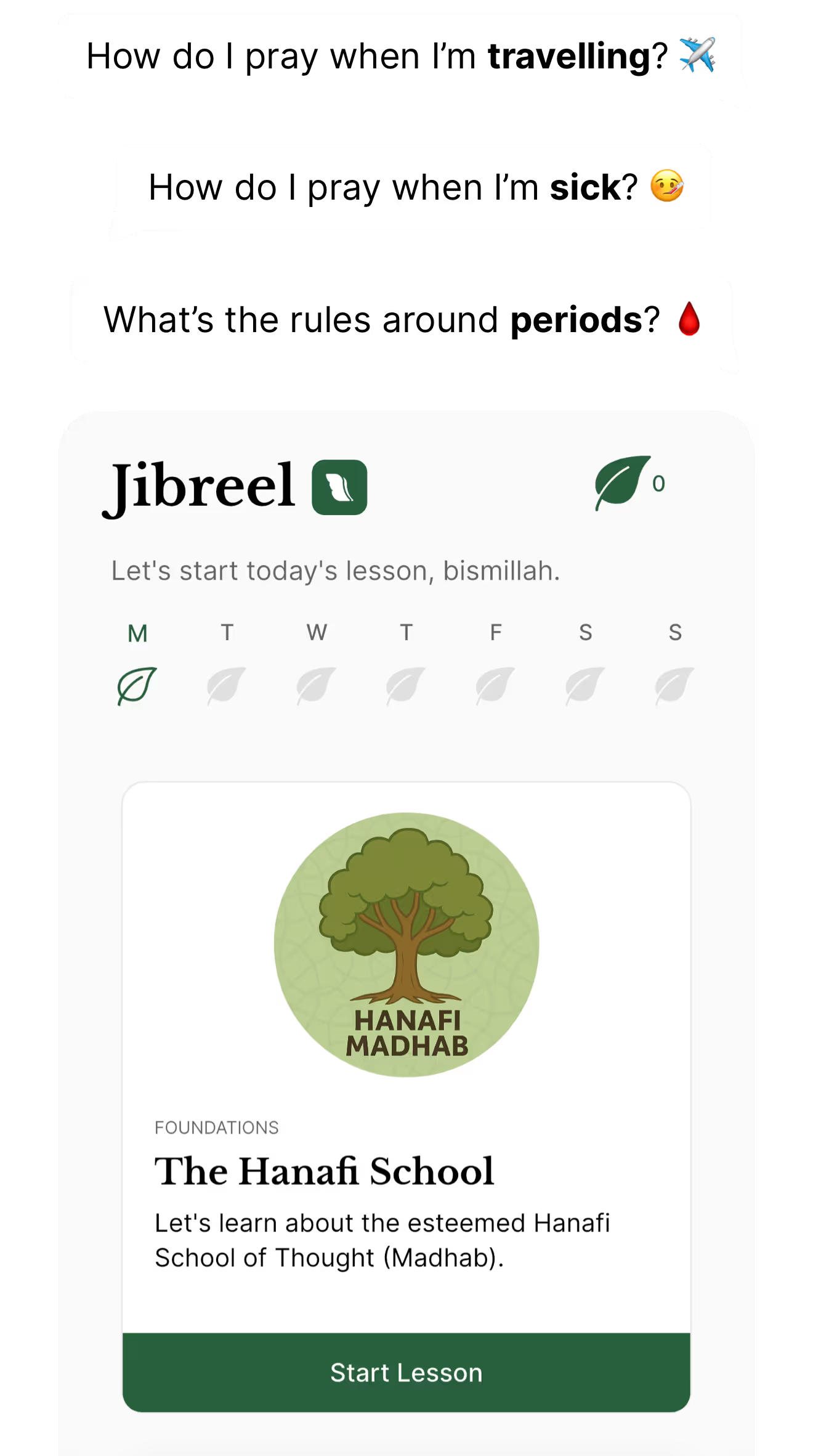What Does “Iman” Mean? (Definition of Iman in Islam)
Primary meaning: The word īmān comes from the Arabic root ʾ‑m‑n (security, trust, affirmation). Scholars describe īmān as tasdīq (affirmation) in the heart, iqrār (declaration) by the tongue, and ʿamal (actions) by the limbs.
“Iman is to believe in Allah, His angels, His books, His messengers, the Last Day, and in the decree—its good and its bad.” (Hadith of Jibrīl, Sahih Muslim)
Qur’anic basis:
“They all believe in Allah, His angels, His books, and His messengers.” (Qur’an 2:285)
“O you who believe, believe in Allah and His Messenger and the Book He sent down…” (Qur’an 4:136)
Define Iman in Islam
Iman in Islam = faith comprising of six pillars: Allah, angels, books, messengers, the Last Day, and Divine Decree (qadar). It lives in the heart, is spoken by the tongue, and appears in deeds.
The Six Pillars (Articles) of Iman — With Brief Proofs
1) Belief in Allah (Tawḥīd)
Affirming Allah’s oneness in Lordship, Names and Attributes, and worship.
“Say, He is Allah, One.” (Qur’an 112:1)
2) Belief in the Angels
Created from light, honourable servants who never disobey Allah.
“The believers… believe in Allah, His angels, His books, and His messengers.” (Qur’an 2:285)
3) Belief in the Revealed Books
Torah, Psalms, Gospel, and finally the Qur’an, Allah’s preserved word.
“He sent down the Book with the truth and sent down the Scripture before.” (Qur’an 3:3)
4) Belief in the Messengers
From Adam to Nūḥ, Ibrāhīm, Mūsā, ʿĪsā, and Muḥammad ﷺ, the final Messenger.
“Believe in Allah and His Messenger and the Book He sent down…” (Qur’an 4:136)
5) Belief in the Last Day
Resurrection, judgment, Paradise and Hell, with ultimate justice.
“Indeed, the Hour is coming—no doubt about it.” (Qur’an 22:7)
6) Belief in Divine Decree (Qadar), Its Good and Its Bad
Allah’s knowledge, writing, will, and creation encompass all things.
“Indeed, We created all things with decree.” (Qur’an 54:49)
Iman, Islam, and Ihsan — What’s the Difference?
The Hadith of Jibrīl lays out three complementary layers of the religion:
- Islam (submission): outward acts like shahādah, prayer, zakāh, fasting, ḥajj.
- Iman (faith): internal conviction—the six articles above.
- Ihsan (excellence): worshipping Allah “as if you see Him; if you do not, He sees you.” (Sahih Muslim)
These are distinct yet interlinked: Islam without īmān is empty shell; īmān without Islam is incomplete practice; ihsān is the beauty and sincerity that perfects them both.
Does Iman Increase and Decrease?
Yes. The Qur’an and Sunnah affirm that faith (iman) fluctuates:
“When His verses are recited to them, it increases them in faith.” (Qur’an 8:2)
“It increased them in faith…” (Qur’an 9:124)
Classical scholars therefore speak of īmān increasing with obedience and decreasing with sin.
What Iman Looks Like in Daily Life (Iman for Every Muslim)
Iman is not only ideas—it shows up in character and choices:
- Speech: truthfulness, remembrance of Allah, Qur’an recitation.
- Worship: ṣalāh on time, fasting, zakāh, duʿāʾ.
- Dealings: honesty, trusts, fulfilling promises, mercy to others.
- Morals: patience, gratitude, humility, modesty.
- “Modesty is a branch of faith.” (Bukhari & Muslim)
- Community: removing harm from pathways, helping neighbours.
- “Faith has over seventy branches… removing a harm from the road is one of them.” (Bukhari & Muslim)
- Love and brotherhood: “None of you truly believes until he loves for his brother what he loves for himself.” (Bukhari & Muslim)
How to Strengthen Iman (Action Plan You Can Start Today)
- Seek sound knowledge (ʿilm): Study tawḥīd, the six pillars of īmān, and the basics of worship. Clear knowledge clarifies doubts and strengthens the heart. You can do this with the Jibreel app in 5 minute daily lessons.
- Pray with presence: Guard the five prayers; add sunnah and witr. Use a prayer app to help you.
- Recite the Qur’an daily: Even a page a day—consistency beats intensity.
- “The most beloved deeds to Allah are those done regularly, even if small.” (Bukhari & Muslim)
- Dhikr and duʿāʾ: Morning–evening remembrances and heartfelt supplication.
- “In the remembrance of Allah hearts find rest.” (Qur’an 13:28)
- Good company: Keep friends who encourage obedience and good character.
- Charity and service: Give, volunteer, remove harm, visit the sick. Iman loves action.
- Guard the gateways: Filter what you watch and listen to; avoid sins that corrode the heart.
- Gratitude and reflection: Journal blessings; reflect on Allah’s Names and creation.
- Tawbah (repentance): Return quickly after slips; don’t let shame become despair.
- Routines that stick: Tie īmān habits to existing cues (e.g., dhikr after Fajr commute), and track them weekly.
Qur’anic Verses About Iman (Concise, Quote‑Friendly)
2:177 – “Righteousness is… one who believes in Allah, the Last Day, the angels, the Book, and the prophets.”
49:14 – “You have not [yet] believed; say, ‘We have submitted.’ Faith has not yet entered your hearts.”
8:2 – “When Allah is mentioned, their hearts tremble; when His verses are recited, it increases them in faith.”
2:285 – “They all believe in Allah, His angels, His books, and His messengers.”
54:49 – “Indeed, We created all things with decree.”
FAQs: Iman Meaning, Articles, and Growth
What is the definition of iman in Islam?
Īmān is the inner faith comprising belief in Allah, angels, books, messengers, the Last Day, and Divine Decree (qadar)—affirmed in the heart, spoken, and acted upon.
Is iman the same as “faith”?
Yes—faith is the closest English word. In Islamic theology, īmān is richer: it includes belief, speech, and action, and it rises and falls.
Can iman increase and decrease?
Yes. The Qur’an says revelation “increases them in faith” (8:2; 9:124). Obedience increases īmān; sins reduce it.
What are the six pillars of Iman?
Belief in (1) Allah, (2) angels, (3) revealed books, (4) messengers, (5) the Last Day, (6) Divine Decree.
What’s the difference between Islam, iman, and ihsan?
Islam = outward submission
īmān = inner conviction
ihsān = excellence: worship Allah as if you see Him (Sahih Muslim).
Iman Muslim: Foundations Every Muslim Should Know
For every Muslim, understanding īmān is fard ʿayn (personally obligatory) at a basic level. Prioritise learning the six pillars, the meanings of the shahādah, how to pray correctly, and how to avoid beliefs and practices that contradict monotheism (tawḥīd). Build habits that keep īmān alive—knowledge, prayer, Qur’an, dhikr, and service to others. You can do all this and more on the Jibreel app with simple daily 5 minute lessons.
Glossary (Helpful Terms)
- Īmān (إيمان): Faith/conviction that resides in the heart and appears on the tongue and limbs.
- Qadar (قدر): Divine Decree—Allah’s pre‑eternal knowledge, writing, will, and creation.
- Ihsān (إحسان): Excellence and sincerity in worship—“as if you see Him.”
- Tawḥīd (توحيد): Allah’s oneness in Lordship, Names/Attributes, and worship.
- Tasdiq (تصديق): Affirmation/assent of truth in the heart.









